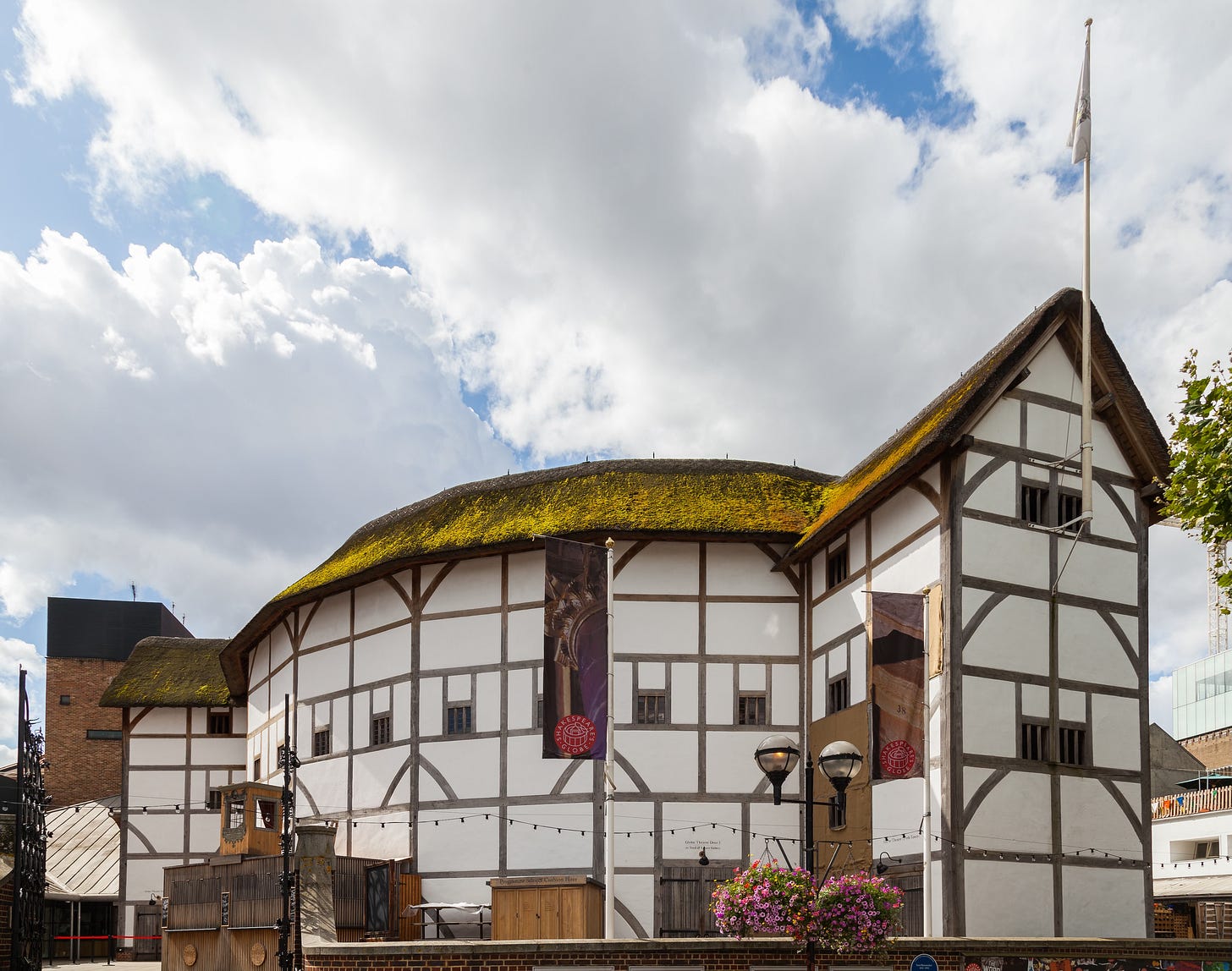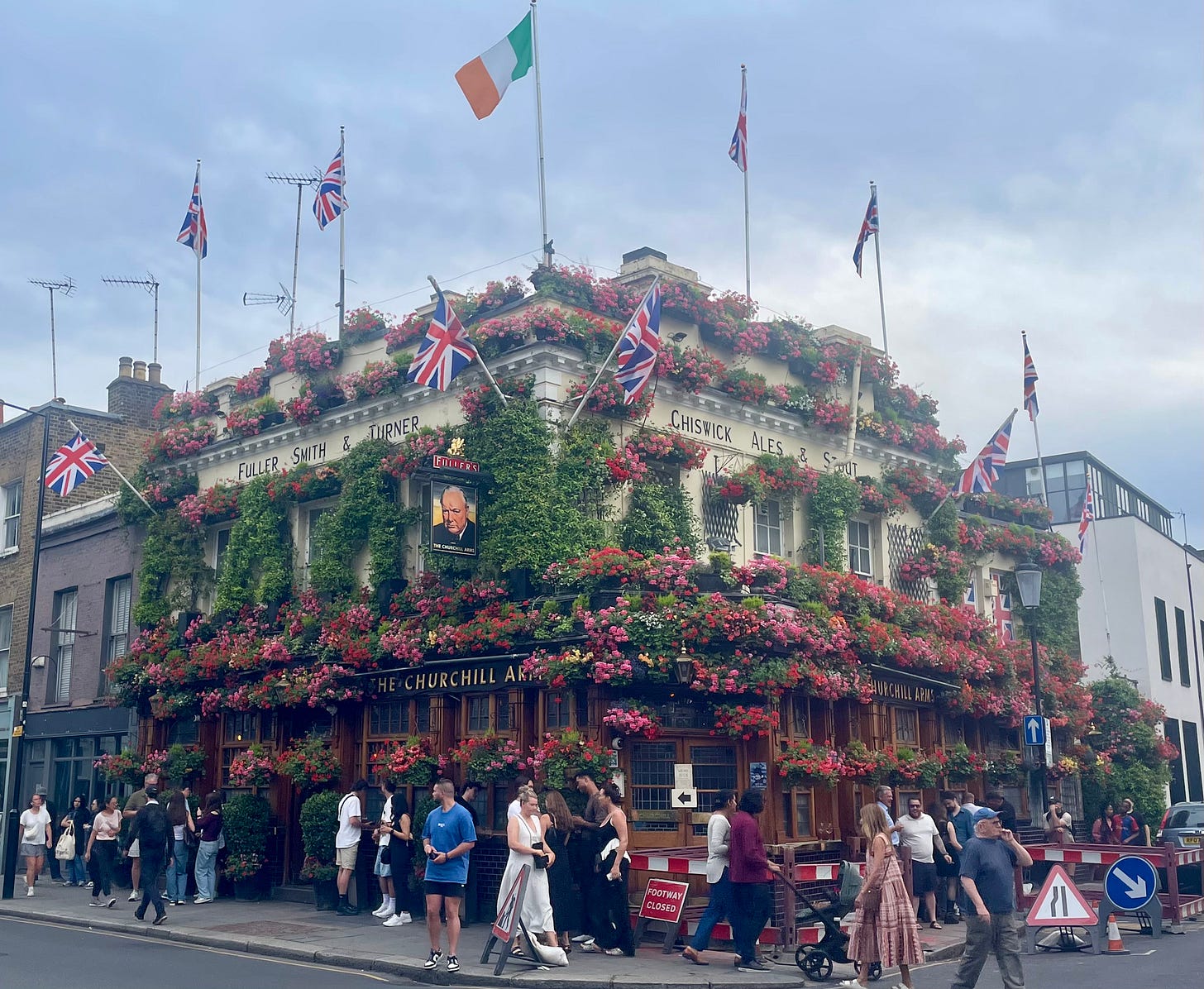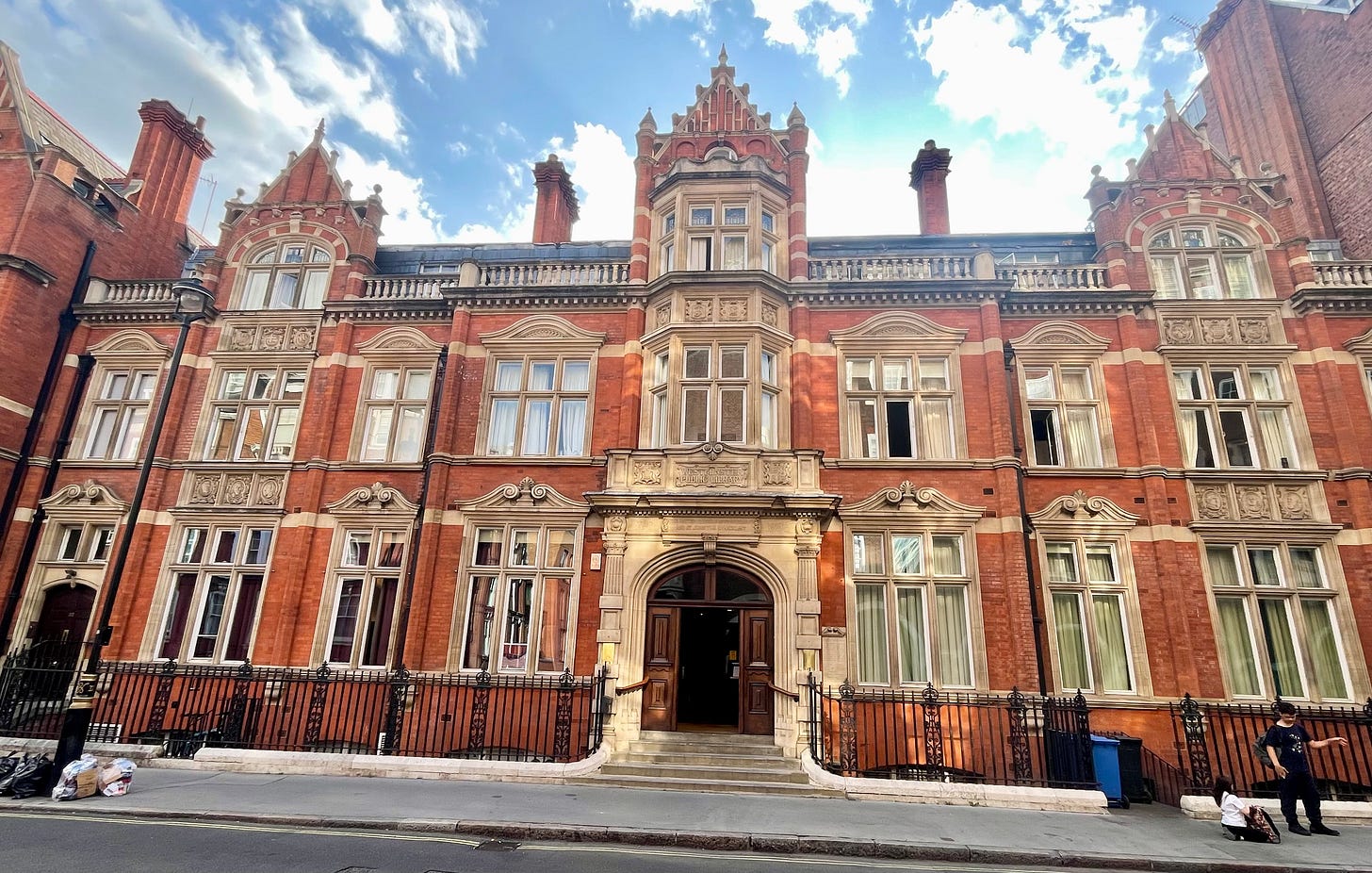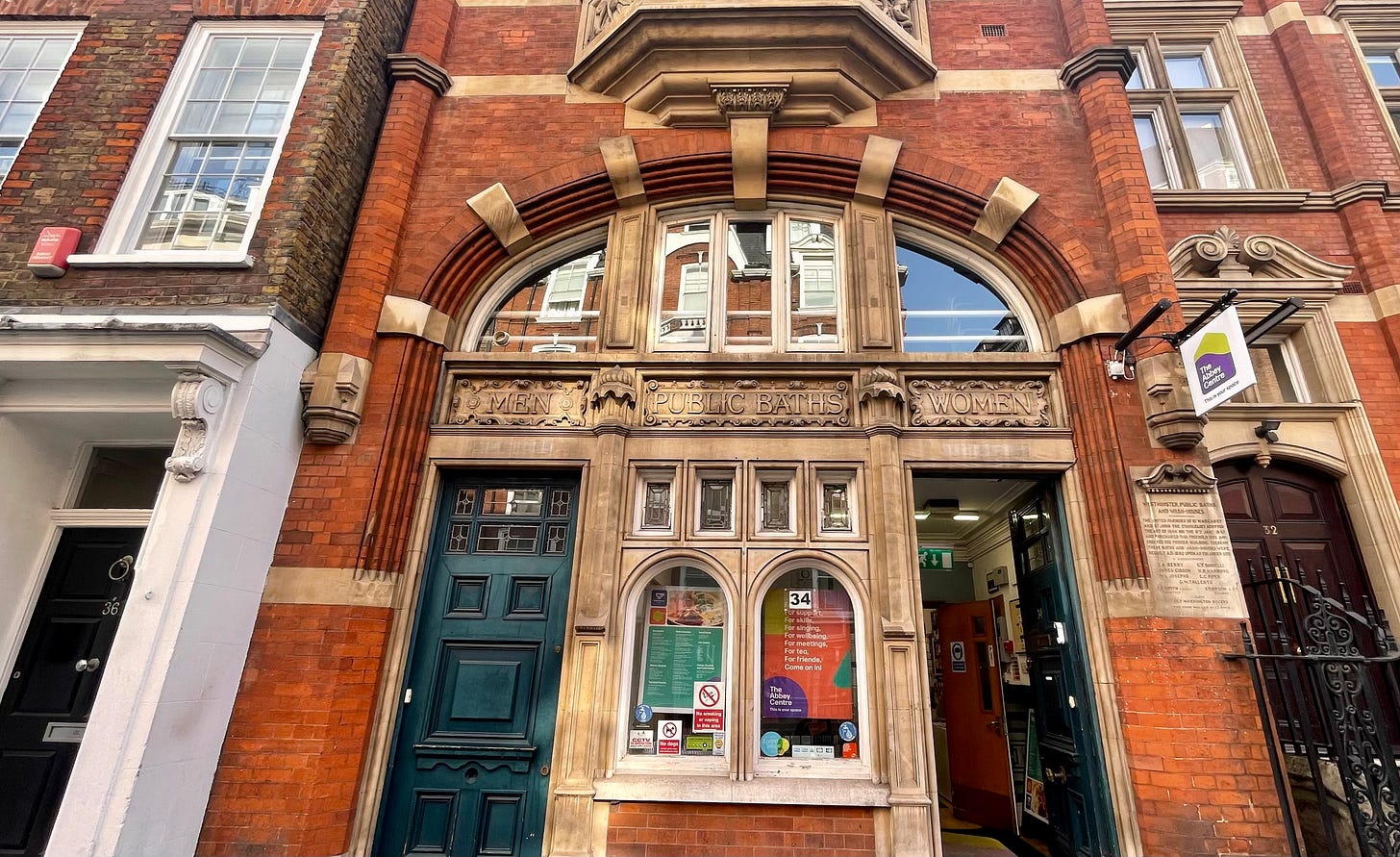London Journal, Part II
On habits, lords, Shakespeare, and more
N.B. For Part I of this journal—which started yesterday—go here.
As you know, Americans need ice—ice in their drinks. Certainly in their cold drinks. This strikes people in many other parts of the world as strange.
In my little hotel, I am unable to get ice, for the ice machine is broken. I have a conversation with an employee about Americans and their—our—predilection for ice.
He says something like this:
I come from Egypt, and we’re the same way. We like ice in our drinks. When I first got here, to London, I went into a fast-food place. There was an ice machine, but it was not turned on. I asked an employee about this. She said, “But it’s winter. We don’t turn on the ice machine until summer.”
I like ice, but I’m also glad for a world with cultural differences (good and benign ones, I mean).
***
Well, here’s a difference between London and New York (where I live). In New York, if you buy a snack with a credit card—a muffin, say, or a croissant—the credit-card machine will ask whether you want to tip: 15 percent, 20 percent, 25 percent? Here in London, there is no such asking, as far as I can tell.
***
Out and about, I see a “Radnor Street.” Everywhere I go in Britain, I see names that I recognize as American place-names. I think, “Oh, that’s where we get it.” We have a Radnor, Pa., as you know. And the name “Radnor” originally comes from Wales, I understand. There was once a Radnorshire there ...
***
British politics, unlike American politics, is full of writers. Always has been. (Burke!) We Americans will have an occasional one—the scholar Daniel Patrick Moynihan, for example.
Boris Johnson was one of the best columnists in the English language, for my money. Then he was mayor of London and prime minister.
In the House of Lords today are Charles Moore, Michael Gove, Toby Young, and Daniel Hannan (to name four conservatives).
It is a joy to meet Hannan in the Lords, in part because it is always a joy to meet Dan, wherever he is, and in part because he knows every inch of the Houses of Parliament and the history of that inch. He is a natural and outstanding teacher.
He makes a point that seems obvious when you hear it but that has never occurred to me: In the history of Britain, the legislature is central. When you write the history of Britain, you write about Parliament, over and over.
This is not true about France, about Spain, about many another country—but about this one, yes.
***
The Churchill Arms has to be the most festive pub in London—well, anywhere. It’s like every day, every hour, is a party:
***
The Garrick Club is also festive, in its elegant, yet homey, way. Founded in 1831, it was named after the actor (David Garrick, who lived in the century before). It has since been the haunt of theatrical and other lively types (Kingsley Amis, for one). Just last year, they started to admit women as members. One of the first admittees was Dame Judi Dench.
Fitting.
***
Stick with theater for a moment. In 1997, on the south bank of the Thames, Shakespeare’s Globe was opened. It is a reconstruction of the Globe Theatre itself—Shakespeare’s theater, built in ’99, which is to say, 1599. Many of the audience members stand. They stand in front of and around the stage. Others, farther back and higher up, sit on benches. These patrons have no backs to lean against.
The Globe is not the most comfortable place in the world, but it’s unique, so far as I know.
I have come to see The Merry Wives of Windsor. The actors really use their voices. I mean, they are unamplified. This is refreshing, in our age of amplification, which is more like an age of overamplification. In the cast are a variety of U.K. accents.
The Falstaff, I must record, is rather fit-looking. He is no fat knight. You are supposed to suspend disbelief in the theater, I realize, but I think a Falstaff ought to be fat, or at least—you know, larger than most.
Before coming here, I spoke to a friend, who said, “I don’t really like Shakespeare’s comedies.” I was glad to hear it. Because I myself have never really liked Shakespeare’s comedies. That is mainly—or rather solely—because I have trouble understanding them.
I have not seen The Merry Wives of Windsor until today. But I thought it would be familiar, because I know Verdi’s opera Falstaff pretty well. You want to know an interesting difference between the opera and the play?
In the play, the hour of assignation is between 10 and 11. In the opera, it’s between 2 and 3 (“dalle due alle tre”—a delightful line, as the librettist, Boito, surely knew).
Let me make a language point (this one about the English language, not the Italian). Mistress Page says, “There is such a league between my goodman and he.” Not “him”? Was “he” right, or acceptable, way back? Or is Shakespeare putting an error in the lady’s mouth?
(I need to brush up on my Shakespeare.)
One more note, maybe. The Host of the Garter Inn says, “Am I politic? Am I subtle? Am I a Machiavel?”
Even then, in Shakespeare’s time, the name of that Florentine sharpie was a byword.
***
When it comes to a Shakespeare play, I always want to know what Mark Van Doren has to say. So have many others, since 1940 or so: when that great man of letters published his book Shakespeare. (I wrote about Van Doren, and his Shakespeare in particular, last January, here.)
No one has ever appreciated Shakespeare more. It is for this reason that he is hard on The Merry Wives of Windsor. Listen to him:
The Falstaff of “Henry IV” is missing from “The Merry Wives of Windsor,” which is said to have been written for a queen who wanted to see the fat knight in love. The trouble is just there; he is in love with the merry wives—or with the plot to make them think he is—rather than with truth and existence, rather than with the merry lives he had been living when Shakespeare caught him in his comic prime.
A bit later in the relevant chapter, Van Doren says,
Only the husk of Falstaff’s voice is here. Shakespeare has written the part with great talent but without love.
Falstaff “forces his wit,” which is not really Falstaff, says Van Doren.
In a final two sentences, Van Doren sums up his view:
With craft and talent Shakespeare has supplied what the convention and a queen demanded. But his genius is not here, or his love.
FWIW.
***
Near Shakespeare’s Globe, alongside the river, a man has set up a booth. He has pads of paper and pencils or pens. The sign says, “Poet for Hire.”
***
Return with me to Westminster for a second (the City of Westminster, where the Houses of Parliament and the Abbey and all that are). Etched into the façade is “Westminster Public Library.” I walk in. It’s a swanky Indian restaurant—but with many books, in a nod to the building’s past.
Etched into another façade is “Public Baths,” with one door for “Men” and one door for “Women.” We have those in New York too—buildings that (still) say “Public Baths.” One forgets, or may forget, the poverty of previous eras. How difficult it was for many people even to keep clean. Bathing in your own home? What a luxury! Unimaginable! (It still is, of course, for countless people around the world.)
You were good to join me today, my friends. See you tomorrow, for Part III.







I bought Van Doren's Shakespeare after reading your column. Now I read it before I read one of the plays and it helps. Next up, Henry IV Pts I and II.
Loving the walking tour of London, Jay. It has me going over the photos I've taken when walking about that City myself. One was taken of me on the base of the Nelson's Column, leaning on a lion! ... and thanks for the Cole Porter reference in your Shakespeare discussion. I kowtow to you!